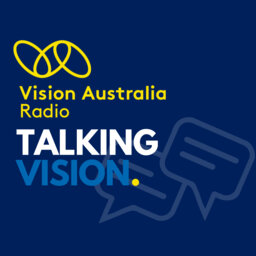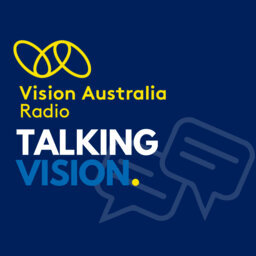Talking Vision Edition 583 Week of 19th July 2021
All abilities bodybuilder and weightlifter Jason Whiter talks about the accessibility challenges he’s experienced as a gym user after losing his vision, and some strategies he’s found useful to overcome them.
He joins Sam on a panel discussion this week with blind soccer referee and personal trainer Sebastian Petrovic to talk about accessible ways to keep fit and healthy this winter, and promote some fun upcoming blind sports and recreation events.
Then later in the show we wrap up with some news and information, and Frances Keyland joins the show with a Reader Recommended.
In 1 playlist(s)
Talking Vision by Vision Australia Radio
Vision Australia Radiothon is on now. Donate via www.varadio.org and make a tax deductible donation …Social links
Follow podcast
Recent clips

Talking Vision 820 Week Beginning 23rd of February 2026
27:55

Talking Vision 819 Week Beginning 16th of February 2026
28:59

Talking Vision 818 Week Beginning 9th of February 2026
28:10
 Talking Vision by Vision Australia Radio
Talking Vision by Vision Australia Radio